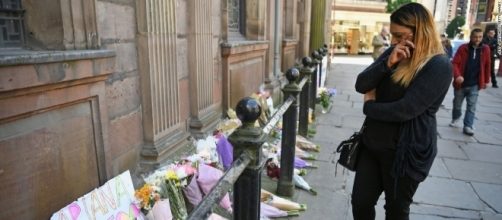The Manchester bombing has taken us by surprise. Once again, we witness the lunacy of some affect the innocent lives of many others. It never ceases to shock us and shake our worlds. Trying to make sense of it is a lost cause. The only thing left to do is to move on. It may seem harsh to some, but it's the only way out of the hole which has been dug up for us which we cannot let ourselves be buried in. People advise others to move on when the past becomes a burden, and the only escape, usually a narrow one, is ahead.
Manchester moves on
The families and friends of the 22 victims of the Manchester Arena attack on Monday will surely remember that day for the rest of their lives, and so will the citizens of Manchester and every other town that has had to go through a similar shock.
I cannot imagine what these people are going through, so I am in no position to tell them what is in their best interest to do or not do. However, it is only up to them and every civilized person out there to prove to the uncivilized ones that seek to put fear in their eyes that they can never be defeated -- that the free world and the free minds of the world will continue to celebrate their way of life every day. Yes, bravery is not in letting go but in moving on.
A good example of such tenacity is the fact that Manchester's music scene resurfaced a day after the unfortunate terrorist attack. The return of music on Tuesday, led by the band Simple Minds, was a step in the right direction. It was a call for everyone to try to return to their daily routines and to continue celebrating life.
Simple Minds' singer Jim Kerr said, "This morning when we woke there was a decision to be made -- do we play or do we cancel and leave town?" He added, "We would have felt cowardly just leaving town." Many fans have agreed with his words while others have felt it was simply too soon to perform. This is the dilemma people have had to face now -- a dilemma that has unfortunately struck many people around the world before.
Twenty percent of ticket-holders decided not to attend Simple Minds' show. But many among those who did go felt there was a greater reason that had swayed them. "We are very saddened, but then we feel we've got to come," told Diane Barber to BBC News. She added, "It would be too easy not to come.
It's been hard. But we have to. That's the thing about Manchester -- it's very strong. It's hard to come, but why should we let these people beat us?" Hopefully, people like Diane will be able to share this sense of defiance that has enabled them to grow stronger in face of difficulty
Battling collective trauma
collective trauma is real. The term collective trauma emerged as a result of French sociologist Emile Durkheim's popular views in the 20th century. He spoke of people's interactions with the social norms and morals that t impact and construct their lives and that are shared with other people in the community. He argued that when these connections are destroyed as a result of a devastating event, people are left defenseless and hampered.
The emergence of collective trauma is every terrorist's wish. Individually, trauma may hit some people in the short term and that has to be accepted. However, what should not be tolerated is for trauma to viciously spread and hold more and more people in our societies captive. Controlling any disease that has already greatly spread is complicated. In order to avoid such states of fear, we have to start from within and not without. Defying fear, like the described music fans and bands in Manchester have recently chosen to do, is not a mere option, but a necessity. Otherwise fear cripples us and ultimately owns us, and that is exactly what the terrorists want for us. And one thing is surely right, we can never let them have that.


